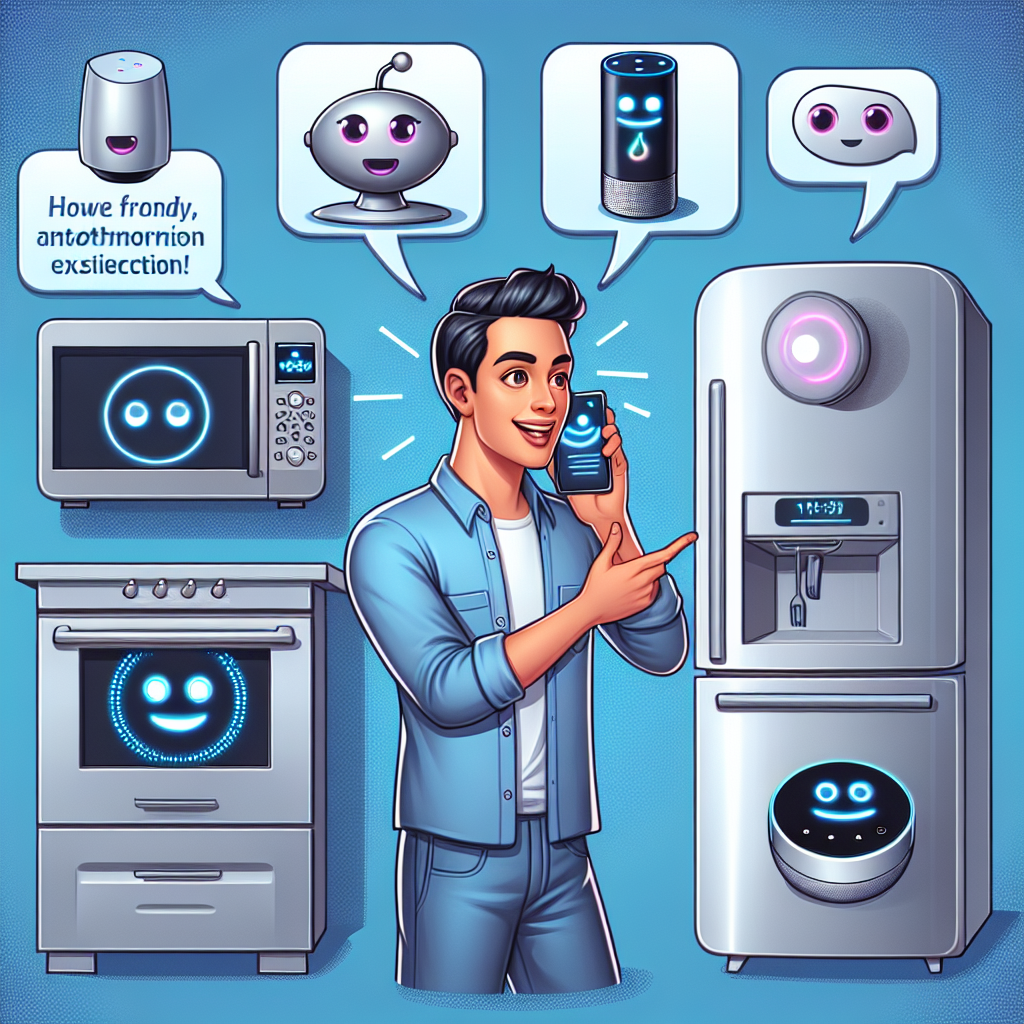In today’s rapidly evolving digital landscape, a new breed of technology is breaking down barriers and putting unprecedented power into the hands of everyday people. AI SaaS Creation Platforms are fundamentally transforming who gets to harness advanced technology, making powerful decision-making tools accessible to those previously left on the sidelines of innovation.
These platforms represent more than just another tech trend—they’re the democratization of artificial intelligence in action. By providing user-friendly interfaces and pre-built components, AI SaaS Creation Platforms are enabling individual entrepreneurs, small business owners, and developers to create sophisticated AI applications without needing a PhD in computer science or millions in venture funding.
The impact is profound. A solo entrepreneur can now deploy AI-powered customer service solutions that previously required entire development teams. Small businesses can analyze market trends with the same depth as corporations with dedicated data science departments. Developers can focus on creating unique value rather than building basic AI infrastructure from scratch.
This democratization isn’t just changing who can use AI—it’s transforming who gets to innovate with it. As a 2023 industry study found, over 60% of today’s AI innovations now come from small teams and individual creators rather than tech giants, a complete reversal from just five years ago.
Revolutionizing Business Operations Through AI-Powered Analytics
The integration of AI-powered analytics into everyday business operations represents a seismic shift in how decisions are made. These tools transform raw data into actionable insights in real-time, allowing even the smallest businesses to make data-driven decisions previously reserved for enterprises with dedicated analytics teams.
Consider how AI Applications are changing inventory management for small retailers. Rather than relying on gut feeling or basic sales reports, shop owners can now access sophisticated demand forecasting that continuously learns from purchasing patterns, seasonal trends, and even social media sentiment. This level of insight was unimaginable for small businesses just a few years ago.
For service-based businesses, AI-powered analytics tools are revolutionizing customer relationship management. By analyzing communication patterns, service requests, and satisfaction metrics, these platforms can identify at-risk customers before they consider leaving, suggest personalized retention strategies, and even automate follow-up communications.
The operational streamlining aspect of these platforms is equally transformative. AI agents can now handle routine tasks like appointment scheduling, invoice processing, and customer inquiries, freeing human talent for higher-value activities. A small marketing agency owner shared, “What used to take my team 20 hours a week in administrative tasks now happens automatically. That’s 20 more hours we can spend on creative strategy and client relationships.”
The efficiency gains are substantial. A recent survey of small businesses using AI SaaS platforms reported average productivity increases of 37% within just the first three months of implementation. More importantly, 82% reported making “significantly better business decisions” thanks to the insights provided by these tools.
Empowering Non-Developers Through Low-Code Platforms
Perhaps the most revolutionary aspect of modern AI SaaS Creation Platforms is their embrace of low-code development environments. These user-friendly interfaces have fundamentally altered who can create sophisticated technology solutions, extending the power of innovation far beyond those with traditional programming skills.
Low-Code Platforms use visual interfaces, drag-and-drop components, and intuitive workflows to make application development accessible to anyone with a clear vision and basic digital literacy. This approach has opened the floodgates of innovation by removing the technical barriers that previously kept great ideas from becoming reality.
“I had this idea for an AI-powered invoicing system that could predict cash flow based on client payment histories,” explains Jamie, a freelance graphic designer. “Five years ago, that would have remained just an idea. Today, I’ve built it myself and it’s completely transformed how I manage my business finances.”
The statistics support this democratization of development. According to Gartner research, 70% of new applications will be developed using low-code or no-code technologies by 2025, nearly tripling from 2020 levels. This shift is creating a new category of “citizen developers” who can contribute to technological innovation without formal programming training.
For small teams and individual creators, low-code AI platforms level the playing field by dramatically reducing both the time and cost of bringing ideas to market. What once required months of development and substantial investment can now be accomplished in weeks or even days, often at a fraction of the traditional cost.
This accessibility is fostering innovation in unexpected places. Industries that have historically lagged in technology adoption—from local education and healthcare to agriculture and small-scale manufacturing—are now seeing waves of practical innovation as practitioners build tools tailored to their specific challenges.
Enhancing Team Performance Through Intelligent Collaboration
The workplace is undergoing a fundamental transformation as Intelligent Collaboration tools powered by AI create new paradigms for how teams work together. These technologies go far beyond simple communication tools, actively enhancing how groups make decisions, share knowledge, and maintain alignment.
AI-enhanced collaboration platforms now serve as both facilitators and active participants in team processes. During virtual meetings, AI assistants can automatically capture action items, generate comprehensive summaries, and even identify potential conflicts or misalignments in team discussions. This ensures that insights aren’t lost and that everyone shares a common understanding of decisions and next steps.
“Our team spans three time zones, which used to create constant friction and misunderstandings,” explains the founder of a remote-first software company. “Our AI collaboration tools now ensure everyone stays aligned by summarizing discussions, highlighting decisions, and automatically routing information to the right people at the right time. It’s like having a brilliant project manager who never sleeps.”
The emergence of Customizable AI Digital Workers represents another leap forward in team augmentation. These specialized AI agents can be tailored to specific industry needs and workflow requirements, becoming valuable team members with defined responsibilities. From legal teams using AI paralegals for contract review to marketing departments deploying AI content specialists for campaign optimization, these digital workers enhance human capabilities rather than replacing them.
A recent study of teams using intelligent collaboration tools found a 42% reduction in miscommunication and a 31% increase in successfully implemented decisions. Perhaps most tellingly, 76% of team members reported feeling more confident in group decisions when AI tools helped structure discussions and document outcomes.
This technology is particularly transformative for small businesses that lack specialized departments. A three-person accounting firm can now leverage AI collaboration tools to maintain the organization and workflow efficiency of much larger operations, allowing them to compete effectively against established players.
Empowering Individual Productivity Through Personal AI Tools
The benefits of AI SaaS platforms extend well beyond the organizational level, with Personal Use AI Products transforming how individuals approach everyday tasks and decisions. These user-friendly tools serve as personal assistants, coaches, and advisors, helping people make smarter choices across all aspects of life.
Workflow Automation tools allow individuals to create custom systems for managing their unique combination of responsibilities. A freelance consultant might build an automated workflow that tracks client communications, manages project timelines, sends follow-ups, and even generates preliminary reports—all without requiring manual intervention for each step.
“I used to spend about 40% of my day on administrative busywork,” shares a self-employed financial advisor. “With my custom AI workflows, that’s down to maybe 10%. The rest of that time I can spend actually working with clients or developing new service offerings. It’s completely changed my practice.”
The accessibility of these tools represents a fundamental shift in personal productivity. Previously, custom automation required either significant technical skills or substantial financial investment. Today’s user-friendly AI tools democratize these capabilities, making them available to anyone regardless of technical background.
This accessibility is evident in the adoption rates. A recent survey found that 68% of independent professionals now use some form of AI tool in their daily work, with 43% creating custom workflows or applications despite having no formal technical training. The average reported time savings was 11.5 hours per week—more than a full workday reclaimed from administrative tasks.
Beyond pure productivity, these tools enhance decision quality by providing data-driven insights for personal choices. From freelancers using AI to optimize pricing strategies to small business owners leveraging predictive analytics for inventory decisions, individuals now have access to decision support previously available only to large organizations.
Building a Collaborative Ecosystem Through AI Marketplaces
The rise of platforms for Sharing and Selling AI Products has created vibrant ecosystems where innovation compounds upon itself. These marketplaces allow creators to distribute their AI applications to wider audiences, creating both new revenue streams and accelerating the pace of collective innovation.
When a small business owner develops a custom AI workflow that solves a specific industry challenge, they can now make that solution available to others facing similar issues. This creates a virtuous cycle where practical, field-tested innovations rapidly spread throughout industries and across sectors.
“I created an AI system that helps restaurant owners optimize staff scheduling based on reservation patterns, weather forecasts, and historical data,” explains a former restaurant manager turned AI creator. “What started as a solution for my own business is now used by over 300 restaurants worldwide. The monthly subscription revenue actually exceeds what I made running my restaurant.”
These marketplaces democratize not just the creation of AI tools but also their distribution. Small teams and individual developers can reach global audiences without needing extensive marketing resources or sales teams. This creates unprecedented opportunities for specialized solutions that might serve niche markets too small to attract attention from traditional software companies.
The economic impact is substantial. A recent analysis of leading AI marketplaces revealed that over 40% of top-selling applications came from individual creators or teams of fewer than five people. Collectively, these small-scale developers generated over $420 million in revenue last year—concrete evidence of how democratized AI creation is creating new economic opportunities.
For users, these marketplaces provide access to specialized tools created by industry practitioners rather than generic solutions designed by removed software companies. A dental practice can find practice management tools created by other dentists, while a boutique law firm can access legal workflow automation built by attorneys who understand their specific challenges.
Zygote.AI: Empowering Everyone to Create and Innovate
The vision behind Zygote.AI embodies this democratization of technology creation. As an AI SaaS Creation Platform, Zygote.AI is committed to making powerful AI capabilities accessible to everyone, regardless of their technical background or resources. This philosophy aligns perfectly with the broader movement toward technological inclusivity and distributed innovation.
By providing a user-friendly low-code platform, Zygote.AI enables anyone to transform their ideas into functional AI applications. Whether it’s an individual entrepreneur seeking to automate routine tasks, a small business creating custom solutions for specific industry challenges, or a developer looking to rapidly prototype new concepts, the platform removes technical barriers that previously limited who could innovate.
The customizable AI digital workers and workflows offered by Zygote.AI cater to the specific needs of various industries, ensuring that solutions are relevant and immediately applicable to real-world problems. This flexibility is crucial for addressing the diverse challenges faced by different sectors and organizations of various sizes.
Perhaps most importantly, Zygote.AI’s commitment to building an open marketplace for sharing and selling AI SaaS products fosters a collaborative ecosystem where innovation can flourish. When users can easily distribute their creations, successful solutions spread rapidly, benefiting entire communities and industries.
As we look toward a future where AI becomes increasingly integrated into every aspect of work and life, platforms like Zygote.AI play a crucial role in ensuring this technology serves as a force for empowerment rather than division. By putting powerful creation tools into everyone’s hands, we move toward a world where the benefits of AI are widely shared and where innovation comes from everywhere, not just traditional technology centers.
The democratization of AI creation isn’t just changing what technology can do—it’s fundamentally transforming who gets to decide what it does. And that may be the most important revolution of all.









